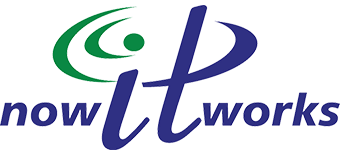- Learn what Incognito (private) mode does and does not do.
- Get other options that might be more effective depending on your browsing habits and goals.
Many small businesses worry about the “Big Brother” effect, especially when it comes to internet browsing activity. Major Internet players such as Google or Amazon routinely track which websites you visit, what you do there, and how long you stay.
Most often, such tracking is merely annoying since it results in having targeted ads pop up on our screen. However, it can be more serious especially if it gathers information about your visiting a competitor’s website or researching a new vendor.
To prevent unwanted tracking, many browse the Internet in incognito or private mode. Nearly all browsers allow you to open a private window simply by changing one of the browser’s settings or clicking on a button. However, the word “private” might be leading too many astray. In this blog, we’ll cover what incognito mode really does and does not do for you.
What Incognito (Private) Mode Does
When browsing in incognito or private mode, no permanent history of your session is recorded. In addition, closing your session erases the browsing history and any cookies that have been placed on your computer. This prevents a subsequent user of the same device from having any access to your session’s history or cookies.
The result of such private browsing usually produces fewer targeted ads since online companies won’t know which sites you have visited, what you did, or who you are.
Nevertheless, private browsing mode does not amount to total secrecy.
What Incognito Mode Doesn’t Do
While private browsing mode erases your browsing history, it does not mask your ISP address or encrypt your activity. It is still possible to trace your identity through your ISP address, and your Internet Service Provider still has access to your browsing history. Such continuing transparency extends to organizations as well.
For example, if you conduct a private browsing session on an organization’s network (such as your employer, school, or other organization), the network administrator will be able to track all your activity even if you are using your own personal device. In addition, law enforcement agencies usually retain similar tracking ability.
Further, private browsing does not prevent web accounts that you have logged into (Facebook, Google, your bank, a shopping account, a government agency, etc.) from tracking your identity and activity. Of course, this capability is convenient for you and them, but you should be aware that it is happening.
Most importantly, incognito/private browsing does not protect you from any attempts to hack your device or network. It does not protect against malware or other cybercrime.
Implications for Your Business
If you or your team share computers, private browsing will allow each user to treat a computer as a “borrowed” device for browsing purposes only. And this works only when each user completely closes the private window when leaving the device.
Further, you can use incognito mode to prevent tracking your activity by sites that don’t require you to log in. For instance, you might need to research a competitor but without their being able to track your activity on their site. Since any cookies that they might place on your device will be erased when you close your private session, your exploring their site is likely to go undetected.
However, your business might need stronger protection against having your identity and internet activity tracked. When conducting financial or purchasing transactions online, for instance, you should investigate using other, stronger measures.
Solutions to Consider
Using a reputable Virtual Private Network (VPN) is an effective way to avoid having your identity and activity tracked. This is especially important when accessing the Internet through a public, insecure portal such as an airport or other public place. Even then, you should avoid signing in to personal or sensitive sites such as your bank. A VPN will mask the identity of your ISP and your geographical location. Most also encrypt all Internet transmissions for additional secrecy.
Some browsers offer features that prevent tracking more effectively. For example, Avast can also protect against “fingerprinting”—a form of tracking that bundles other technical markers such as the type of computer you use, its screen resolution, and your browser to identify you. And they offer special protection to customers who conduct banking or similar transactions online.
Other non-tracking browsers include DuckDuckGo, Brave, or Opera. Before deciding about which browser to use for your business, you might check with your managed service provider. Sorting through competing claims and features can be confusing.
Finally, your business might need a cybersecurity audit and upgrade. Private browsing alone does not offer any significant protection against hacking, ransomware attacks or other cybercrimes. Get the help you need and protect your business.
Please reach out to us at Now IT Works with any questions or additional concerns about private browsing or cybersecurity issues. We’re here to help.

